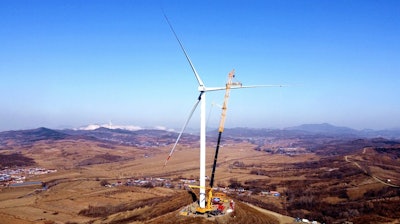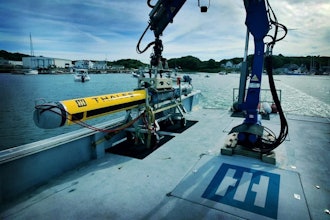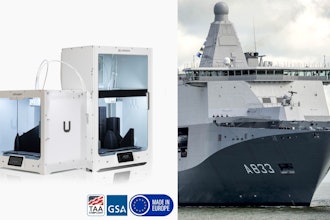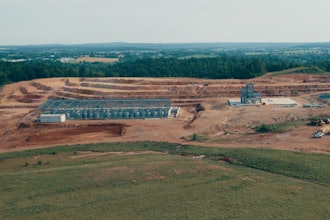
The XCA3000, the world's largest tonnage wheeled crane and a proprietary innovation of XCMG, has recently completed its first assignment in Yingkou, Liaoning Province, China, setting a new benchmark in operational efficiency and lifting capacity.
At the Dashiqiao Xintai New Energy 200 MW wind energy facility, managed by China Energy Engineering Group Northeast No.2 Electric Power Construction, the XCMG XCA3000 hoisted a 25-ton, 95-meter-long wind turbine blade to a height of 107 meters. It was then accurately docked onto the wind turbine hub and installed in place. The operation was observed by executives from the energy and heavy-lifting industries, as well as journalists.
With the employment of the world's exclusive crane, specifically designed for the hoisting of wind turbines, operational efficiency has more than doubled. A wind turbine nacelle, with a weight of 135 tons and a power output of 5MW, can now be effectively installed within a 30-minute operational window.
The XCMG XCA3000 wheeled crane features a 3000-ton lifting capacity, making it ideal for installing wind turbines up to 10MW. At a height of 160 meters, it can hoist 190 tons, setting a new record for the highest and heaviest lifting capacity among wheeled cranes.
Global wind power equipment manufacturing is evolving towards larger, heavier, and bigger models. Consequently, lifting and installation equipment with higher lifting capacities, greater lifting heights, more efficient heavy-load handling, and enhanced safety technology have become critical for the rapid advancement of the wind power industry.
XCMG has independently researched and developed wheeled cranes capable of lifting over a thousand tons, and has now successfully achieved import substitution with these models.
The XCA3000 has made further improvements in high-performance flexible boom technology, addressing issues such as reduced lifting performance at high altitudes and limited space beneath the turbine lifting hooks. The improvement achieves a 20-30% reduction in the time needed to install a wind turbine.
Additionally, the crane's ability to transport heavy components such as the main arm and legs, weighing up to 317 tons, coupled with its gradeability of 20%, enhances its effectiveness in heavy-load transfer.





















